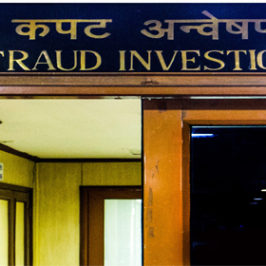 With a spate of corporate irregularities coming to the fore, the Centre has decided to make disclosure norms more stringent. Corporate India is now required to submit details of transactions involving the receipt of money or loans taken by them, which are otherwise not considered deposits.
With a spate of corporate irregularities coming to the fore, the Centre has decided to make disclosure norms more stringent. Corporate India is now required to submit details of transactions involving the receipt of money or loans taken by them, which are otherwise not considered deposits.
Every company other than Government company to which these rules apply, shall on or before the 29th day of June, of every year, file with the Registrar, a return in Form DPT–3 along with the fee as provided in Companies (Registration Offices and Fees) Rules, 2014 and furnish the information contained therein as on the 31st day of March of that year duly audited by the auditor of the company.
Form DPT–3 shall be used for filing return of deposit or particulars of transaction not considered as a deposit or both by every company other than Government company.
- Due Date of the Form DPT-3 – Return of Deposits: Every company shall on or before the 30th day of June, of every year, file a return of deposit with the Registrar and furnish the information contained therein as on the 31st day of March of that year duly audited by the auditor of the company.
- Due Date of the Form DPT-3 (ONE TIME): Form DPT-3 one time Due Date – all companies would be required to file Form DPT-3 one-time on or before the 29th June 2019
- DPT-3 Due Date (EVERY YEAR): Form DPT-3 every year on or before 30th June of the preceding year.
Auditor of Company prepare the financial statements which include the following (Audited Copy)
- Balance sheet,
- Profit and loss account
- Income and expenditure account
- Cash flow statement
- Statement of changes in equity
Due Date: 29th May 2019
Penalty On the defaulting company
A fine of minimum Rs. 1 crore or twice the amount of deposit so accepted, whichever is lower, which may extend to Rs.10 crores; and
Every Officer who is in default: Imprisonment up to seven years and with a fine of not less than Rs. 25 lakh which may extend to Rs. 2 crores.





